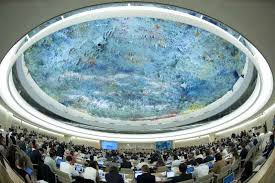As Malawi gears up for its general elections scheduled for September 16, the National Initiative for Civic Education (NICE) Trust, in partnership with Citizen Watch, has raised alarm over the spread of misinformation and fake news, calling it a serious threat to the country’s democratic process.
The two organisations made their concerns known during a civic engagement meeting held in Chikwawa district, where community leaders, youths, and members of the media were sensitised on the dangers of unverified information.
Speaking at the event, Chiyembekezo Gwazayani, District Programmes Officer for NICE, stressed the need for accurate and responsible information sharing, especially during the election period.
“Misinformation can lead to public destruction and undermine the democratic process,” he warned. “We urge citizens, especially the youth, to verify information before sharing it and become champions of truth.”
Gwazayani noted that as the country draws closer to the polls, the circulation of false claims, doctored images, and manipulated videos has increased on social media platforms, with the potential to incite violence, spread hate, and create voter apathy.
He further explained that free, fair, and credible elections can only be achieved when the electorate is well-informed and empowered with factual knowledge about candidates, policies, and the electoral process.
Also speaking at the meeting, Francis Mazinga, Chief Executive Officer of Citizen Watch, called on young people to become more politically aware and active. He said that fake news not only misguides voters but also weakens the accountability of elected leaders.
“Young people must realise that politics is not a distant concept. It affects everything — from the jobs we get, to the quality of schools and hospitals, to the development projects in our communities,” Mazinga said.
He challenged Malawian youths to take ownership of the democratic space by using digital platforms to promote truth, civic responsibility, and peaceful participation in the electoral process.
As part of their ongoing voter education efforts, NICE Trust and Citizen Watch are holding outreach programmes in traditional authorities, schools, youth clubs, and local media houses in Chikwawa and surrounding districts. These engagements aim to equip citizens with the tools they need to spot fake news, ask the right questions, and make informed decisions.
Civic educators are also training local influencers, community radio presenters, and peer leaders to serve as ambassadors of accurate information, especially in rural areas where internet literacy is low and rumours spread fast.
According to NICE, strengthening civic awareness is not just about elections — it is about building a more informed and engaged society. The organisation believes that a well-informed citizenry is the best defense against manipulation and political exploitation.
With the countdown to September 16 already underway, stakeholders are calling for a joint effort involving the Electoral Commission, civil society organisations, political parties, religious bodies, and the media to tackle the menace of fake news head-on.
Analysts say Malawi, like many other democracies, is increasingly vulnerable to disinformation campaigns, particularly during election seasons. The deliberate spread of false information has been used in other countries to sway voters, damage reputations, and discredit electoral institutions.
To prevent a repeat of such scenarios, both NICE Trust and Citizen Watch are urging citizens to rely on official communication channels, verify news sources, and report suspicious content to relevant authorities.
As Malawi prepares for what is expected to be a closely contested general election, the fight against fake news could be just as important as the campaigns themselves.
